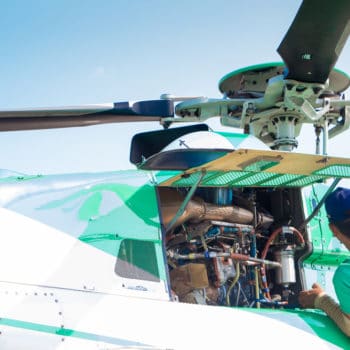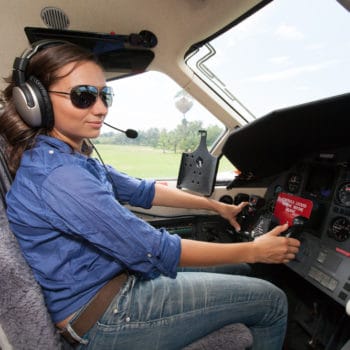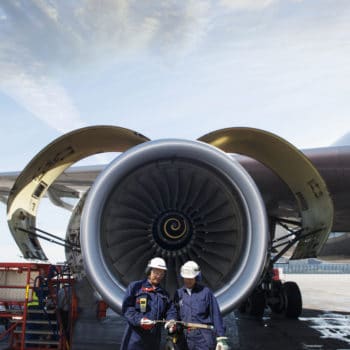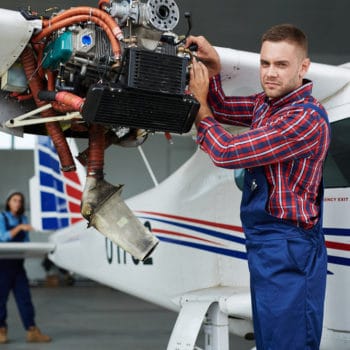Why We Love It
-
$51,040Potential Avg. Salary
-
-4.9%Job Growth Rate
-
Don't Take Work HomeCareer Attribute
-
Skill-Based WorkCareer Attribute
If you work in aircraft manufacturing, you will be working on varied components such as development, design and manufacturing of missiles, space-crafts, aircrafts, their navigation systems and other related parts.
Recommended Schools
What is an Aircraft Manufacturing?
Duties
As an aircraft manufacturing technician, you have to be involved in some of the tasks listed below:
- Undertake repairs, assembling and overhaul of diverse manufacturing equipment, such as numerically controlled and precision-built machines.
- Utilize different computing systems and test equipment to test how well electrical or electronic systems are functioning.
- Install any service or maintenance upgrades/modifications on specific aircrafts as required by the client.
- Ensure that all major projects are finished on time and run inspections to complete finished products.
- Supervise other production personnel when manufacturing helicopters, jets, airplanes and other aircrafts, to be in accordance with industry and/or safety standards.
Day In The Life
An aircraft manufacturer in their daily work assembles or fits aircraft structural parts. You will also be expected to repair structural components and perform sub-assemblies. You will spend time removing and installing any components of the aircraft system as necessary, including composite components fabrication using technical drawings and designs. This involves spending time assembling pins and glues cabinet shells made of polymer and metal honeycombs and installing drawer slides, hinges, latches and other aircraft hardware.
Another aspect of routine work will be measuring and cutting different materials like vinyl, plastics, phenolics composites and metals correctly with reduced wastage. Some of your other work will involve installing and conducting testing for both hydraulic and mechanical flight control systems.
Finally, you will get the opportunity to work with other staff such as aircraft maintenance support team and production supervisors to perform preventative maintenance and adjust industrial machines as needed. Using your outstanding knowledge of aircraft manufacture and repair procedures, you will ensure that all processes are in keeping with safety, housekeeping, FOD prevention and tool control programs.
Work Schedule And Typical Hours
Working with aircraft production, you will be employed full time and can expect to be working nights, evenings as well as weekends when required. You will be functioning in shifts with other workers on the team. There are several hazards associated with this type of job, including possible exposure to fumes or odours, frequent lifting and carrying of heavy and medium loads in noisy environments. Duties might include working with lubricants, oils, chemical cleaners and solutions.
Growth Of The Job
The aircraft and aerospace industry is growing and will require skilled manufacturers and production workers for continuing aircraft construction. Specialised knowledge in mathematical and engineering principles for assembling a range of aircrafts will bring you viable employment in this career path. Promotions can lead to positions as quality or safety inspectors as well as supervisors or managers.
Typical Employers
You can find employment with both large and small aircraft manufacturing plants, military aviation and aviation companies. Some examples of such employers are: The Spaceship Company, DynCorp International LLC, US Air Force, PKL Services, Hawker Pacific Aerospace, Adams Communication & Engineering Technology (ACET), Commercial Jet, Lockheed Martin, etc.
Recommended Schools
How To Become an Aircraft Manufacturing
To start with, you will require at least a high school diploma or equivalent for any aircraft manufacturing job. In high school, having relevant coursework such as engineering can give you an advantage with familiarity in manufacturing principles and applications. Trade electives are also helpful to build your understanding of utilizing different materials in manufacturing. Completing vocational and technical school can give you better chances of being hired in this industry.
You must have the ability to clearly communicate and understand English, as well as read or interpret data when required. Basic knowledge of electrical theory and mastery of aircraft unique tools like torque wrenches, micrometers, dial indicators, and sheers is helpful. With short deadlines for assigned projects, you should be comfortable prioritizing workloads and maintaining schedules regularly. Finally, some jobs in military aviation and top government agencies require you to pass a secret security background check, or get a secret clearance.
Several small colleges, technical schools and community colleges provide certificate programs in welding to help you master brazing, gas metal welding, oxyacetylene welding and metal arc welding. Employers generally provide on-the-job training and sometimes, employer-sponsored technical instruction or coursework. The focus of these programs are on manufacturer specifications and the latest work practices. Continuing education is important for the aviation industry with evolving technology, so employers provide different opportunities for advanced training and specialisations.
Aircraft Manufacturing Salary Data
We’ve provided you the following to learn more about this career. The salary and growth data on this page comes from recently published Bureau of Labor Statistics data while the recommendations and editorial content are based on our research.
National Anual Salary
Low Range
$38,320Average
$51,040High Range
$76,500National Hourly Wage
Low Range
$18/hrAverage
$25/hrHigh Range
$37/hrHow do Aircraft Manufacturing salaries stack up to other jobs across the country? Based on the latest jobs data nationwide, Aircraft Manufacturing's can make an average annual salary of $51,040, or $25 per hour. This makes it an Above Average Salary. On the lower end, they can make $38,320 or $18 per hour, perhaps when just starting out or based on the state you live in.
Salary Rankings And Facts
#379 Nationally for All Careers
Programs and Degrees
Here are the most common degrees for becoming an Aircraft Manufacturing. a is usually recommended and specifically a degree or coursework that prepares you for the particular field, see below.
Highest Education Among Aircraft Manufacturings
- 0% Doctorate
- 0.7% Masters
- 3.3% Bachelors
- 6.2% Associates
- 40% College
- 38% High School
- 11.8% Less than High School
Job Growth Projections and Forecast
2014 Total Jobs
40,6002024 Est. Jobs
38,600Job Growth Rate
-4.9%Est. New Jobs
-2,000How does Aircraft Manufacturing job growth stack up to other jobs across the country? By 2024, there will be a change of -2,000 jobs for a total of 38,600 people employed in the career nationwide. This is a -4.9% change in growth over the next ten years, giving the career a growth rate nationwide of Below Average.
Growth Rankings And Facts
#699 Nationally for All Careers
What Companies Employ The Most Aircraft Manufacturings
| Industry | Current Jobs | New Jobs Needed | % Increase |
|---|---|---|---|
| Aerospace product and parts manufacturing | 36,300 | -2,100 | -2% |
| Support activities for air transportation | 2,000 | 200 | 0% |
| Temporary help services | 900 | 200 | 0% |





















